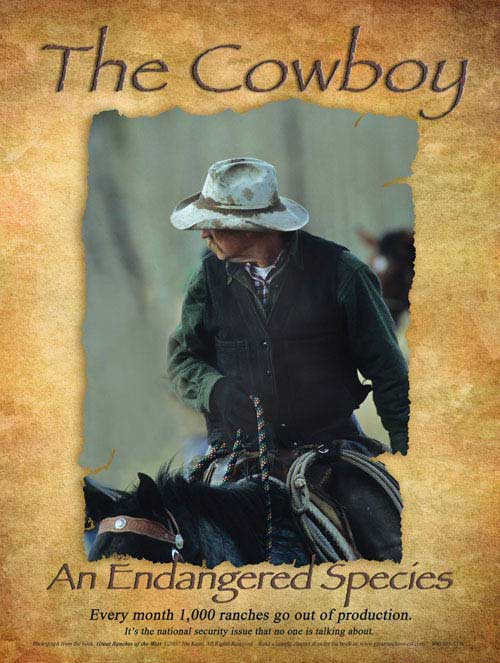
We knew thirty years ago (1990) we were headed down the wrong road in the cattle and beef industries. NCBA has been a key element in destroying the very industry they have claimed to represent.
May 26, 2010
What happened to the meat? The Barnes and Noble Test
By Mike Callicrate
NCBA and Beef Checkoff taking credit for developing new products and building beef demand is as ridiculous as a company like BP claiming to promote the Gulf fishing industry.
I recently attended a gathering at a Five Star hotel in Colorado Springs. A lady sitting at my table looking at the filet on her plate, mostly uneaten, grumbled, “That’s it, I’m not eating another steak in a restaurant.”
“NCBA’s long-range plan, financed with our checkoff dollars, is on track. Their goal of vertically integrating and industrializing the cattle and beef sectors using the chicken and hog models has, for the most part, been accomplished.”
Why has the NCBA and the Beef checkoff ignored the drastic quality decline in commodity beef? The hormone/steroid implant programs have never been more aggressive, resulting in even less tender, less flavorful beef than years ago when it was documented that most steaks lacked sufficient tenderness. And now, in the interests of technology and drug company profits, we are feeding Optiflex and Zilmax (beta-agonists) to increase carcass weights, while reducing eating quality to new lows.
Tenderness problems caused by misguided production technology now require most commodity steaks to be blade and/or chemically tenderized. These pre-digestion techniques make the meat more chewable, but do not address the mealy mouthfeel and lack of natural flavor. It also doesn’t fix our inability to digest the tougher muscle fiber and the uncomfortable digestive feeling following the meal – made worse by the weight enhancing water solutions and chemical flavoring agents. Yesterday, a woman in our meat market said she got sick eating store-bought beef at her daughter’s house. She informed her daughter she wouldn’t be coming to dinner again if the meat didn’t come from Ranch Foods Direct.
Per capita demand is decreasing at a fast pace as consumers react negatively to bad meat-eating experiences. More consumers turn away as they become aware of the way livestock are treated in the abusive industrial food system. Last week, at an animal welfare symposium in Manhattan, Kansas, Temple Grandin related, “If you can’t explain to people at Barnes and Noble in New York City what you are doing and have them understand and accept it, you shouldn’t be doing it.”
“If you can’t explain to people at Barnes and Noble in New York City what you are doing and have them understand and accept it, you shouldn’t be doing it.” – Temple Grandin












